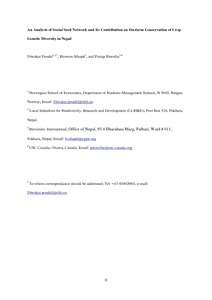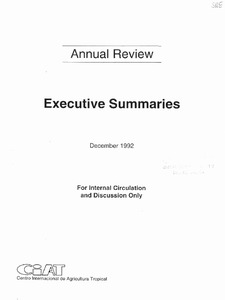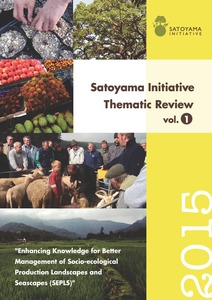Adoption and factors affecting on adoption of integrated pest management among vegetable farmers in Sri Lanka
The overuse and misuse of chemical pesticides has widely been reported in vegetable cultivation in Sri Lanka. While safer and environmental friendly pest and disease management methods such as Integrated Pest Management (IPM) are popular around the world, only little effort has been taken to promote IPM in Sri Lankan vegetable cultivation. Furthermore, farmers have not shown much interest on practicing IPM in vegetable cultivation.
An overview of development processes and farmers' interactions in a participatory forest fire prevention programme in Jambi province, Indonesia
The participatory forest fire prevention programme of Forest Fire Prevention Management Project (FFPMP) aims at intensive fuel management and fire control with the integrated green belt on community land on the boundary of Berbak National Park, Jambi Province, Sumatra. It aims to motivate farmers to cultivate their land continuously, reducing fire hazards and risks through formation of fuel breaks around the forest. Participating farmers face technical limitations in seedling production, land preparation without burning, and crop planting and protection.
Analysis of cotton water productivity in Fergana Valley of Central Asia.
Cotton water productivity was studied in Fergana Valley of Central Asia during the years of 2009, 2010 and 2011. Data was collected from 18 demonstration fields (13 in Uzbekistan, 5 in Tajikistan). The demonstration field farmers implemented several improved agronomic and irrigation water management practices. The average values of crop yield, estimated crop consumptive use (ETa) and total water applied (TWA) for the demonstration sites were, respectively, 3700 kg/ha, 6360 m3/ha, and 8120 m3/ha.
Annual Review : Executive Summaries 1992
Assessing farmers’ perception for resilience of socio-ecological production landscapes in central and eastern Kenya
In order to understand farmers’ perceptions of resilience
in socio-ecological production landscapes and seascapes
(SEPLS), a participatory field assessment was conducted in
Kenya. A tool developed by the United Nations University-
Institute of Advanced Studies and Bioversity International
was used to elucidate the range of perceptions of risk
faced by five communities living in different agro-ecological
and socio-economic conditions. This paper presents
the practical process of carrying out assessments at the
Assessing the financial and economic viability of water user associations and canal management organizations in Ferghana Valley countries of Central Asia [Abstract only].
Assessment of skimming well performance in Punjab, Pakistan by groundwater simulation modelling
Assisting community management of groundwater: irrigator attitudes in two watersheds in Rajasthan and Gujarat, India
The absence of either state regulations or markets to coordinate the operation of individual wells has focussed attention on community level institutions as the primary loci for sustainable groundwater management in Rajasthan and Gujarat, India. The reported research relied on theoretical propositions that livelihood strategies, groundwater management and the propensity to cooperate are associated with the attitudinal orientations of well owners in the Meghraj and Dharta watersheds, located in Gujarat and Rajasthan respectively.




